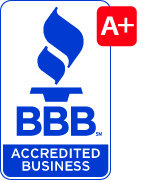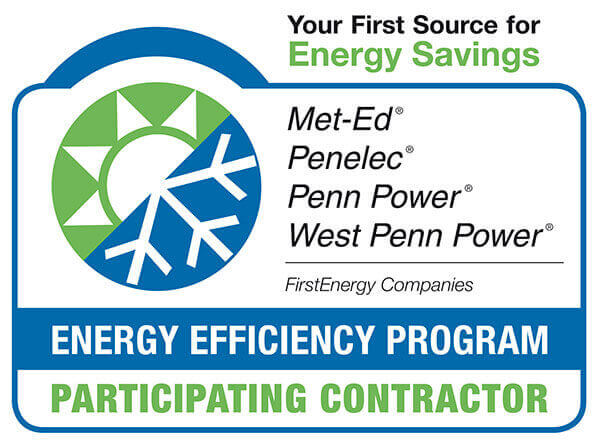SOS XTREME Comfort® provides the best heating and cooling repair services in Millrift. Our technicians are trained in the very latest technology and can work on all brands of oil, propane, electric and gas heating systems and central air conditioning systems.
We service, repair and install:
- Oil Heat Systems
- Gas Furnaces, Boilers and Heating Systems
- Propane Heating Systems
- Electric Heat Pumps
- Central Air Conditioning Systems
- Ductless Heating and Cooling Systems
At SOS XTREME Comfort®, we specialize in creating comfortable environments in homes and businesses. We have been helping customers in and around Millrift since 1934. Give us a call today to get your heating or cooling system serviced or installed.
Call For Fast Service:
845-351-4701
API Token is not configured
In addition to servicing Millrift we also service the following nearby towns:
Dingmans Ferry, Greeley, Greentown, Hawley, Lackawaxen, Matamoras, Milford, Millrift, Paupack, Rowland, Shohola, Tafton
Click here to view our total service area.
FAQs
Q: What does HVAC stand for?
A: You may have heard this phrase before. It is regularly used in the niche to refer to your heating and cooling system. It literally stands for heating, ventilation, and air conditioning.
Q: What type of maintenance do I want to do on my heating and cooling system?
A: The most effective means to keep your system running effectively is by ensuring that it has proper air circulation. When you have filthy air filters, blocked registers or air vents, or debris around your outside unit, then you are not effectively maintaining your unit. Be sure that, as a property owner, that you are very aware of this and keep your system clean. Make sure to organize a tune-up in the preseason. One really should be set up in the spring for your AC and one more ought to be scheduled in the autumn for your heating system.
Q: Why do I have to replace my air filter?
A: Replacing your air filter is one of the crucial aspects to a properly working HVAC system. It allows your system to have air flow. An added advantage is that it also greatly improves indoor air quality by helping keep your home free from dust, allergens, and germs. The frequency of changing your filter varies depending on the style of filter that you get. Some need monthly replacement whereas, others may have to be changed more frequently. Additionally, the environment in which you live also makes a difference . A skilled Millrift HVAC service provider will be able to advise you on what type of filter works best for your type of system.
Q: How do I recognize when to replace my air filter?
A: We advise that you replace your air filter on a month-to-month basis. Having said that, it is best to replace your filters as frequently as needed so your system runs with the best efficiency. Examine them more regularly if you live in a dusty environment or have pets. If your filter looks dirty, then make sure to remove and replace it immediately.
Q: Should a loud noise coming out of my air conditioning unit and heating system be something that worries me?
A: A noisy HVAC unit can be bothersome to you and your next-door neighbors. Even if your unit seems to be performing well, no one wants to know when your system is kicking on or off. This is usually the case when your unit is in close distance to a bedroom window. Also, noise pollution is a genuine concern and a loud HVAC system definitely contributes to it. The reason that your system is so rackety is generally because of the following:
- Your unit is older
- The kind of unit you have
- Your compressor-insulted or not
Thankfully, new systems have sound ratings that you can compare and contrast. Most contemporary units are constructed to be quieter than their earlier counterparts. Sound ratings will guide you as to which model might work great for you. A quieter model will be preferable if there is a bedroom nearby.
Q: I have an idea of the real dangers of a carbon monoxide leak. Is this something I might be worried about?
A: Carbon monoxide gas is an issue that you should certainly be concerned about. It is a good option to use a carbon monoxide alarm in your house since you will not be able to recognize if there is a leak in your house otherwise. Proper care and maintenance of your HVAC equipment can prevent CO leaks.
Q: What does IAQ imply?
A: IAQ means Indoor Air Quality. While you may have heard of outdoor air pollution, indoor air pollution is just as risky. In fact, it may be a lot more of an issue simply because there is a lot more exposure to this form of pollution than outdoor air pollution, as explained by the American Lung Association. Indoor air pollution is the presence of pollutants that exists within your home. New HVAC systems can help protect against indoor air pollution due to the fact that they are built to help those who suffer from allergies and respiratory challenges. These are typically the types of symptoms that are demonstrated from indoor air pollution.
Q: What are the causes of indoor air pollution?
A: Factors to indoor air pollution can vary. Some might actually shock you. A number of items in your household have substances that emit fumes or gases. These include:
- Carpeting
- Home furnishings
- Drapes or window curtains
- Upholstery
- Cleaning products
Since newer homes are constructed so tightly, they do not breathe as well as older residences do. While this may make for an extremely energy efficient home, it also promotes to indoor air pollution. The buildup of gases and fumes trigger indoor air pollution. This can be minimized by having an HVAC system that enables proper airflow. With a whole house ventilation system, a house owner can experience an incredibly energy efficient house without the problem of indoor air pollution.
Q: I have invested in a new furnace and air conditioner. How long should I presume it to last?
A: When your system is completely taken care of, you can count on your brand new furnace or AC system to operate for about 15-20 years. Please note that units become less energy efficient as they age. This is one of the leading causes that house owners decide on an upgrade. Also, systems do differ and therefore, their life expectancies do too. The most prevalent issues that set how long a system will work is genuinely appropriate installation and maintenance. Naturally, a system that is not appropriately installed or cared for will not last as long as one that is. They also will not perform as economically. You can get proper care for your HVAC system by speaking to a Millrift HVAC service provider, like SOS XTREME Comfort®.
Q: I should purchase a new heating/cooling system. How do I purchase the right one for me?
A: Most importantly, you want to think about the size of the unit. Don’t be tempted to buy an over-sized unit, expecting that it will heat up or cool down your house a lot rapidly than a smaller sized one. Some property owners expect that a little unit will reduce their home cooling and heating expenses. A unit that is too little will not save money on your electrical power bill. Some people have the mistaken belief that size is an option. As a matter of fact, it is not. The size of your unit has to match the size of your ductwork. Otherwise, your home will not feel comfortable and your electrical power expenses will escalate. A Millrift, Pennsylvania HVAC company will be able to help you figure out what size your home needs in order to do its job effectively. A perfectly sized unit will keep your home comfortable and in an energy efficient manner. Be sure to ask your HVAC expert about operating expenses for the brand-new system that you are interested in. Make sure to choose one that pays itself off. New systems are so energy efficient that you will surely see a difference on your electrical power costs and that is how you get a gain from your investment.
Q: Will a new Millrift HVAC system decrease my power bills?
A: A new Millrift HVAC system will definitely save you money. It will lower your home heat and air conditioning costs. A system’s efficiency is determined by its SEER rating. SEER is a term in the HVAC niche that stands for Seasonal Energy Efficiency Ratio. New designs are required by law to have a minimum 13 SEER rating. With a SEER 13, operating costs are reduced by as much as 50%. This suggests that, yes, your brand-new system will most certainly bring down your energy bills.












